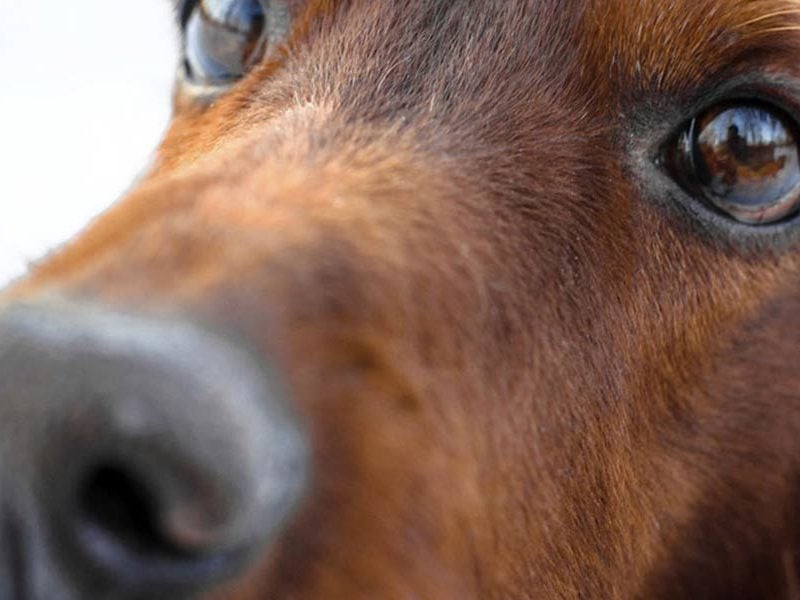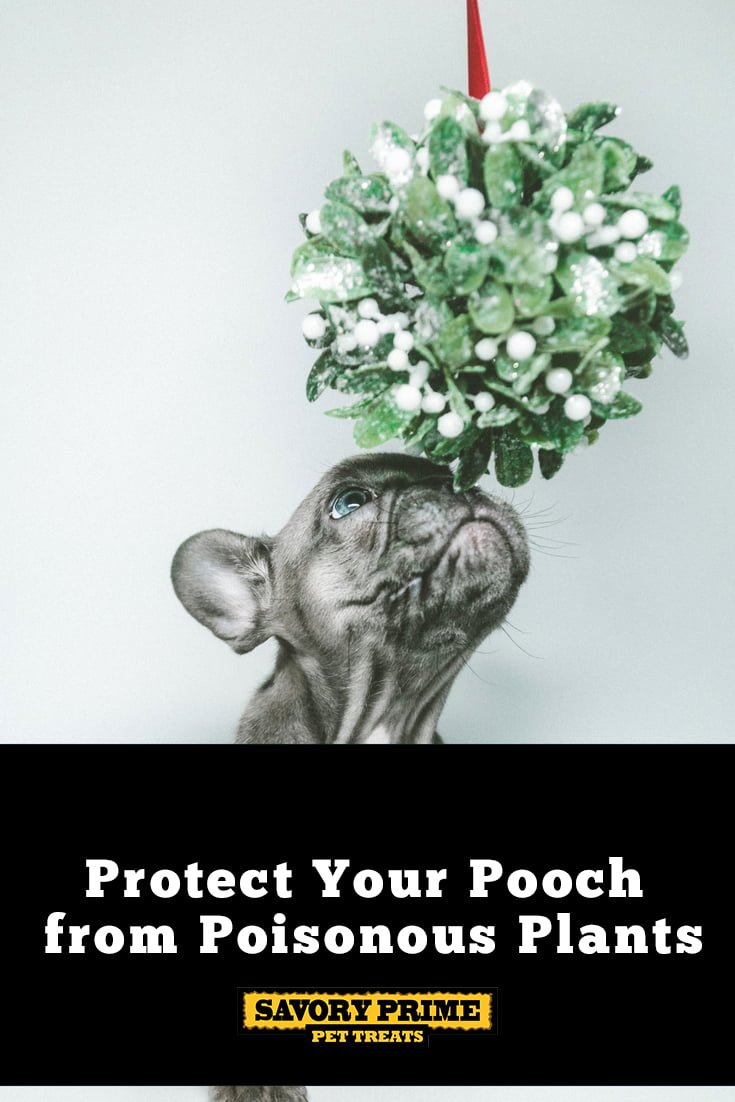Some Garden-Variety Plants Can Send Your Dog to the Vet
It’s amazing how few people are aware that some household and garden plants can be poisonous to dogs: 93 percent of Americans can’t identify exactly what plants they have in their home! Limit your dog’s potential for contact with houseplants and discourage any nibbling.
As a conscientious owner, you should learn what plants can harm your dog. Here are a few of the common threats:
- Lily of the valley has a cardiac glycoside that can act like digitalis on the heart, same for foxglove and oleander.
- Castor beans contain ricins—a toxin that causes respiratory distress and pulmonary edema.
- Sago palms can cause liver damage.
- The Christmas mistletoe is widely reported to be poisonous, but its toxicity is overrated. Vomiting and diarrhea may result when eaten, but usually the effects are short-lived.
- When dogs ingest the shiny, spiny leaves and red berries of the holly plant, the result is usually no more than mild to moderate gastrointestinal upset, and the dog can be managed symptomatically. The major effect of holly is a gastrointestinal irritation.
- Poinsettia is probably the best-known Christmas plant next to mistletoe. Dogs who eat poinsettia may show irritation of the mucous membranes, hypersalivation, and vomiting. These symptoms rarely require medical intervention.
- Another Christmas plant, kalanchoe (flaming katy), contains molecules related to the cardiotoxic compounds of poisonous toads that can poison the hearts of animals. Dogs are particularly sensitive to the cardiotoxic effects of kalanchoe. No deaths have been reported, but dogs show vomiting, diarrhea, anorexia, and depression after ingestion of this plant. Animals who have consumed kalanchoe must see a veterinarian and may require medical intervention and support until the signs of poisoning subside.
- Tobacco, of course, contains nicotine, which can poison dogs. Ingestion of as little as one cigarette can produce toxic signs in dogs.
- The toxicity of raisins and grapes is well documented in dogs.
Probably the most common effect plants can have on dogs is that of an allergen. The pollens of many plants and the plants themselves can irritate hypersensitive animals. Allergies may be seasonal and only show when the plants are in bloom and pollen is present.
Recent Pet Posts
Blog Categories
Product categories
- Accessories (7)
- Chicken & Veggie Wraps (8)
- Grillers Jerky Tenders (4)
- Jerky Treats (10)
- Made in the USA (9)
- Non-Rawhide Treats (28)
- Beggar Bone (11)
- Bully Sticks (4)
- Butcher Bone (4)
- Cod Skin Fish Treats (3)
- Pork Skin Twists (2)
- Pressed Rawhide Bones & Rolls (16)
- Bones & Rolls (6)
- Pressed Rawhide Bulk (6)
- Twist Sticks (4)
- Savory Munchies (13)
- Supreme Bones & Rolls (48)
- American Rawhide Bulk (16)
- Rawhide Bones (14)
- Rawhide Chips (6)
- Rawhide Rolls & Sticks (12)
- Uncategorized (8)
Blog Post Tags
allergies
Alternative to rawhide
apartment dogs
apps for dogs
Bath time. how to
Beggar Bones
best dog breeds for apartments
bullysticks
bully sticks
canine news
canine traveling
dog breeds
Dog date
dog food
dog guide
Dog Hygiene
dog lovers
dog news
dog nutrition
dogstagram
dog tech
Expert Advice
gadgets for dogs
guide
How To Guide
Infographic
infographic. 3 basic commands to teach your pup
Informative News
love dogs
memorial day
must have apps
Paw Lickin' Good
pawlickingood
Pet Lovers
pet tech
pinterest
rawhide
Savoryprime
savory prime
savory prime bully sticks
separation anxiety
superbowl
Tips & Tricks
Training
Valentine's Day



